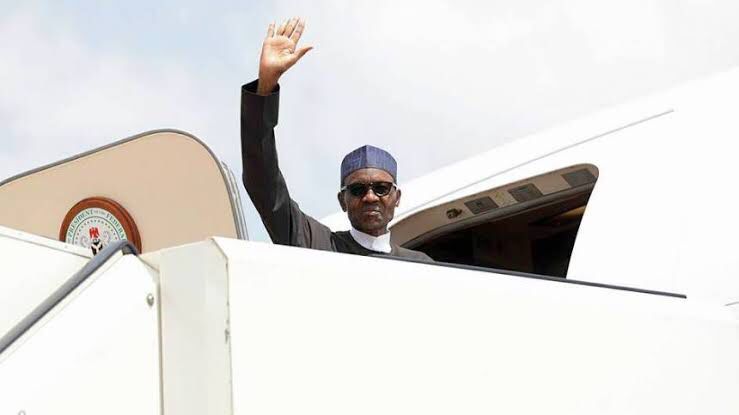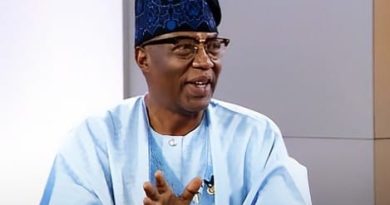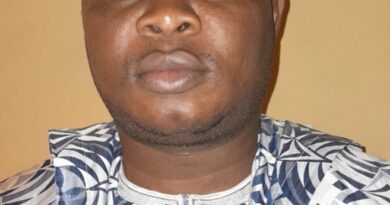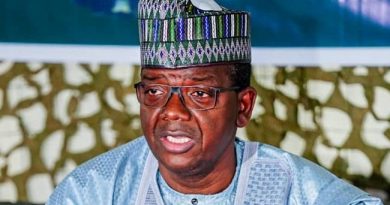“Guguwar Buhari” Is Gone: The End of Handout Votes in Arewa Politics-By Isaac Abrak
“Some politicians still believe they can inherit this legacy—that they can simply stand in Buhari’s shoes and command the North’s votes. But such thinking is delusional”

In the wake of Nigeria’s 2015 general elections, a powerful Hausa phrase emerged: “Guguwar Buhari” —literally Buhari’s whirlwind.It aptly captured the tidal wave of support that swept General Muhammadu Buhari and many others into power under the banner of the All Progressives Congress (APC). The whirlwind was so intense that it carried along even political unknowns—individuals with no record, reputation, or merit—simply because they stood beside Buhari, either on campaign posters or on the ballot.
That year, the APC logo became a winning ticket. Voters, driven by their deep trust in Buhari, voted for any name attached to it. The former general himself fueled this trend with his now-famous campaign line: “APC sama da kasa”—vote APC from top to bottom. And that’s exactly what the *Talakawa* (the masses), particularly in the North, did. From the presidency to the National Assembly, governorships, state assemblies, and local councils, a wave of victories was handed out—not earned—thanks to one man’s charisma.
But mere months into Buhari’s administration, another Hausa phrase quietly entered public discourse: “Guguwar Buhari ta kwashi yayi”—“Buhari’s whirlwind picked up garbage”. The people began to wake up. The same whirlwind that propelled leaders into power had also brought in many unqualified, self-serving, and underperforming politicians. Disillusionment replaced euphoria. The Talakawa realized that too many of their elected representatives were unworthy of the offices they held.
By 2019, the tide was turning. Buhari may have secured a second term, but many of those who had previously clung to his coattails were rejected by a more conscious electorate. The blind loyalty was fading. Voters began asking tougher questions and demanding results. Northern Nigeria was slowly moving away from political sentimentalism toward issue-based engagement.
In 2023, another dimension to Buhari’s political capital emerged—the myth of his “sacred 12 million votes. For over a decade, Buhari had consistently pulled around 12 million votes in presidential elections, largely from the North. This voting bloc became a prized political asset. Every major candidate, including now-President Bola Ahmed Tinubu, sought to harness this number. Whether he succeeded or not is a matter for future political autopsy. But what’s no longer in doubt is that the whirlwind that delivered that power is now gone.
Some politicians still believe they can inherit this legacy—that they can simply stand in Buhari’s shoes and command the North’s votes. But such thinking is delusional.
As one guest rightly noted during a special NTA broadcast on the day of Buhari’s burial, those 12 million votes weren’t earned overnight. They were built over decades of public service—beginning with Buhari’s tenure as Military Governor of the old North-Eastern State, followed by his service as Minister of Petroleum, Head of State, Chairman of the Petroleum Trust Fund, and eventually President. It was a reputation forged through discipline, integrity, and patriotic service.
Even so, Buhari’s aura wasn’t untouchable. As his presidency wore on, the same Talakawa who had once idolized him began expressing disappointment. He was booed at campaign rallies in Kano and Bauchi in 2019, and most memorably in Maiduguri in 2020, when he visited after a Boko Haram attack. Angry residents chanted “Ba mu da shugaba!” (“We have no leader!”) and “Ba mayi!” (we don’t want!). His controversial border closure policy, intended to curb smuggling, had instead led to food scarcity and economic hardship. If “Mai Gaskiya” (The Truthful One) could be jeered, how much more any politician attempting to coast on his reputation?
Today, the Northern voter is changing. The Talakawa want more than slogans. They now demand:
Functional hospitals
Affordable, quality education
Food security
Reliable electricity
Clean water
And, above all, security from terrorism and violence
These are not campaign fantasies—they are expected deliverables. Any leader who wants to command the North must first prove they can deliver these essentials. The North is at a crossroads. It must move from dependency to productivity. Leaders must rise to this challenge or risk being discarded by a growing wave of enlightened voters.
Indeed, there is evidence of this awakening everywhere. On social media,young Northerners—many of them Hausa-Fulani Muslims—are openly rejecting traditional political formulas.Some now declare they would rather vote for a Christian-Christian ticket than a Muslim-Muslim one, if it means better governance. It’s tempting to dismiss this as fringe sentiment—but the message is spreading fast. And it’s reshaping public consciousness.
Let’s be clear: Buhari’s 12 million votes pampered a generation of politicians. Many rode on his back without offering anything meaningful to the people. That era is now behind us. The Northern voter is evolving. Political awareness is rising. And with it, a new demand for performance, integrity, and accountability.
Whoever aspires to lead the North, command the Talakawa, and inherit Buhari’s political legacy must offer more than recycled slogans. They must present tangible evidence of good governance not just political promises.
This shift isn’t a crisis—it’s a victory for democracy. And perhaps, it’s the greatest legacy Buhari leaves behind: a Nigeria where voters are thinking for themselves. If you doubt it, just wait for 2027. The Talakawa will speak again—and this time, even louder.
In death, Buhari has unexpectedly revived his 2015 campaign slogan:“Chanji Dole! no need to translate this one.
Isaac Abrak is a Hostile Environment Journalist, a One Nigerianist, and Chairman of the Northern Christian Youth Professionals.isaaclinus@gmail.com



